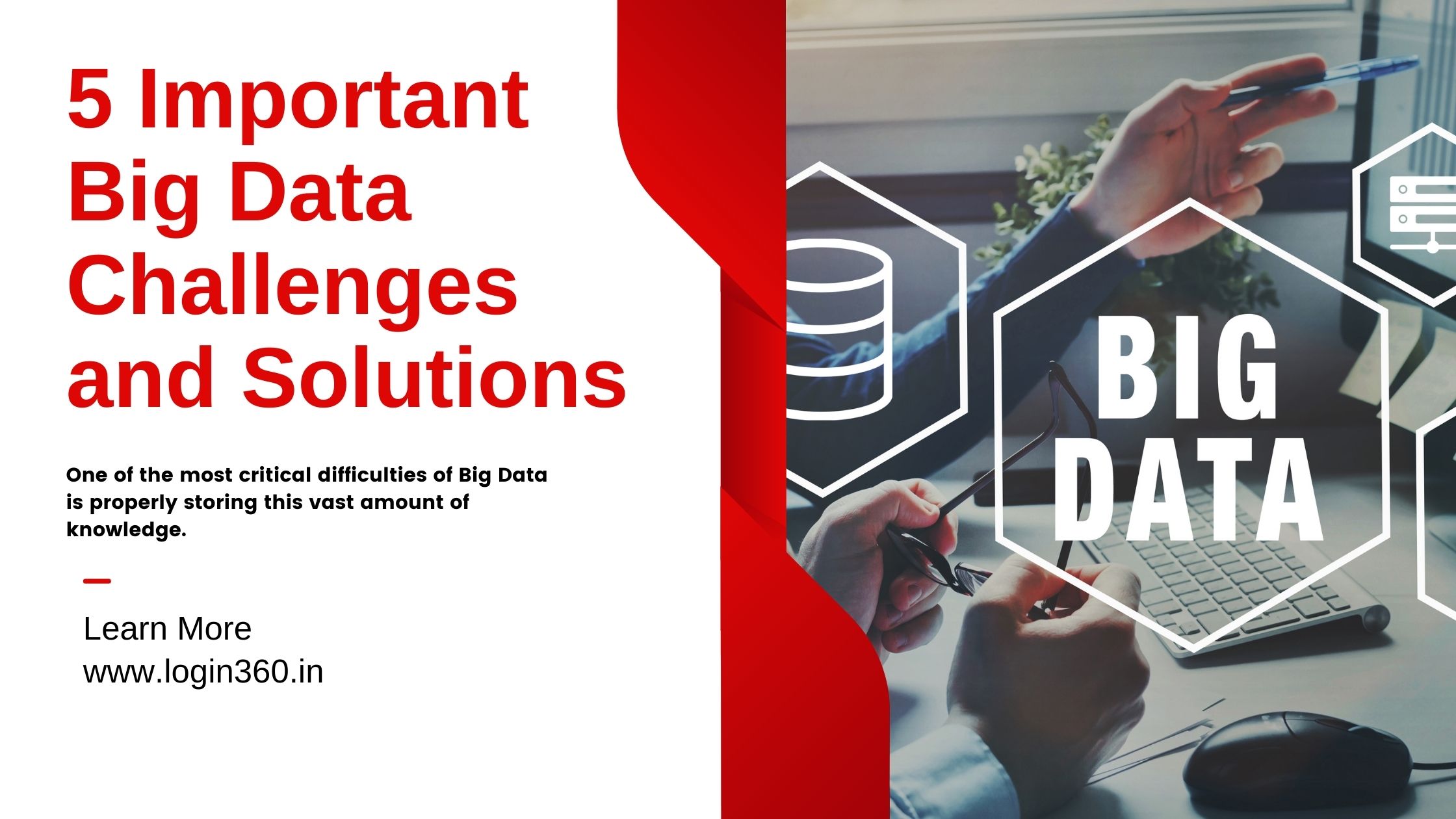
26
August5 Important Big Data Challenges and Solutions
Big Data Challenges and Solutions
One of the most critical difficulties of Big Data is properly storing this vast amount of knowledge.
The knowledge held in corporate data centers and databases continues to expand.
Large data sets multiply over time and become difficult to manage.
Limited knowledge and acceptance of big data
Organizations often fail to understand even the basic concepts of what big data is, what are its benefits, what infrastructure is required, and so on.
A big data adoption project without a clear understanding will fail.
Companies can waste a lot of time and money on products they don't know how to use.
If employees don't understand the value of big data and/or aren't willing to adjust existing processes to accommodate it, they can fight it and hinder the company's success.
Solution:
Big data, being a significant change for an organization, must first be acknowledged by senior management and then move up the ladder.
IT teams should conduct multiple pieces of training and workshops to ensure big data understanding and adoption at all levels.
To increase big data acceptability, implementation and use of the new big data solution must be monitored and supervised.
Top management, on the other hand, should exercise restraint since it can backfire.
Confusing many types of big data technologies
It's easy to get lost in the abundance of big data technology already on the market. Is Spark necessary or is Hadoop MapReduce fast enough?
Is Cassandra or Hbase better for data storage?
Finding the answers can be difficult. It's all too easy to make bad choices when you're swimming in a sea of technology possibilities without a clear idea of what you need.
Solution:
If you are new to the world of big data, it is best to seek professional help. For big data consulting, you can hire an expert or turn to a provider.
In both situations, joint ventures allow you to develop a strategy and, from there, select the appropriate technology stack.
Paying a lot of money
Big data adoption programs are expensive. If you choose an on-premises solution, you must consider the costs of new hardware, new staff, electricity, and other expenses.
Furthermore, even if the required frameworks are open-source, you will still have to pay for the creation, setup, configuration, and maintenance of new software.
If you choose a cloud-based big data solution, you will need to involve employees in cloud services, big data solution development, and deploying and maintaining the necessary infrastructure.
Furthermore, in both circumstances, you'll need to plan for future development to avoid big data growth spiraling out of control and costing you a fortune.
Solution:
The specific salvation of your company's wallet will be determined by your company's specific technology needs and business objectives.
Companies that demand flexibility, for example, can profit from the cloud. When businesses with more stringent security requirements move into premises.
Data lakes can provide low-cost storage for data that you don't need to analyze right now.
Algorithm optimization, in turn, can cut computer power consumption by 5 to 100 times. Or maybe even more.
Overall, the key to overcoming this obstacle is correctly understanding your needs and selecting an appropriate plan of action.
The difficulty of managing data quality
Data from several sources
Because the data you need to evaluate comes from many different sources in different formats, you will eventually struggle with data integration.
Data from website logs, call centers, rival website scans, and social media, for example, must be examined by eCommerce organizations.
Data formats will undoubtedly differ, and matching them can be difficult.
Incredible data
No one denies that big data is not always perfect. But that doesn't mean you shouldn't say how reliable your data is.
It cannot contain false information, but it can duplicate itself and contain contradictions.
Furthermore, data of the lowest quality is unlikely to provide any beneficial insights or bright opportunities for your precision-demanding business operations.
Solution:
There are many data cleaning techniques. But first. You need a good model for your big data. Only after that, you can do additional things:
Contrast the data with a point of truth
If two records relate to the same entity, they should be merged.
Big data challenges security vulnerabilities
The security challenges of big data are a broad topic that warrants its article. But consider the problem on a larger scale.
Security is often deferred in big data adoption projects. And, to be honest, it wasn't a smart decision.
Although big data technologies are evolving, their security properties are still overlooked because security is assumed to be provided at the application level.
What do we get in return? Both times, big data security is simply ignored.
Solution:
Putting security first is a preventative measure against big data security concerns. This is especially important during the architectural design phase of your solution.
Because if you don't get used to big data security now, it will come back to bite you when you least expect it.
